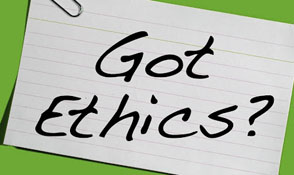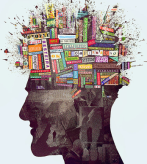Before taking the Ethics, Law and Diversity in Strategic Communications course at UNT I had a basic understanding of ethics. But little did I know, there are numerous concepts, details, legal aspects and previous events that define modern-day ethics and how they apply to strategic communications.
Always Use Good Ethics
The most important thing I’ve learned is professionals need to practice good ethics as best they can in every situation, especially when their decisions will affect others. Thinking twice is a great rule of thumb. Examining case studies in which CEOs or employees made horrible, unethical decisions reinforced this statement every week. Case studies about professionals who were successful always included lessons about how to correctly use ethics.
I now have a thorough understanding of ethical mega-theories (deontological ethics, teleological ethics and subjective ethics) and sub-theories (virtue ethics, cultural relativism, subjectivism, religious morality, egoism, utilitarian ethics, machiavellian ethics, situation ethics, social contract theory, communitarianism and antinomian ethics). These theories are guidelines to making good decisions. While the main theories encompass a broad range of situations, the sub-theories apply in more specific situations. In other words, they are not one-size-fit-all.
Blurred Lines
Instinctive, admirable ethics do not come naturally. Training and understanding are required. No one is born knowing what is right and wrong. Morals, beliefs and acceptable social behavior are learned. And everyone’s definition of good ethics is different, therefore there is no universal rule-book for ethical decision making. Another added difficulty includes what is considered socially acceptable changes over the years. Even five or ten years can make a difference. In the 1960s, America was shocked by this commercial:
Is it shocking now? Not compared to what we see in mainstream media on a daily basis.
So when faced with a choice that involves ethics (most choices), how are we supposed to make the right decision?
1. Apply ethical theories
2. Review codes of ethics
3. Review legal aspects
4. Look at your own morals and values
5. Decide what the greater truth is
6. Review what decisions were made in similar, past situations
7. Think about possible public reactions
Knowledge of these tools, beliefs and events are extremely helpful when a decision must be made quickly. We must remember that instinctual decisions are not always best.
If everyone had the exact same ethical behavior and way of thinking, the world would be a peaceful place. But of course this is not reality. Therefore, ethics education is vital to communicators (and people) around the world.

